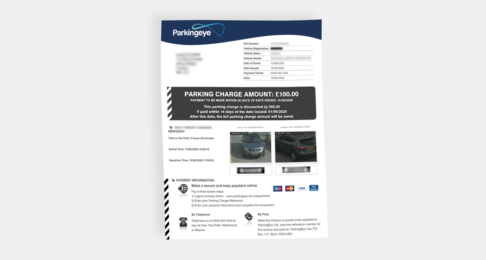Knowledge hub
Welcome to our dedicated knowledge hub for motorists. Whether you are looking to pay your Parking Charge, appeal or just find out more about why car park management is necessary this hub is here to help.


Explore more
FAQ's
-
Are Parking Charges enforceable in Scotland?
In the recent Scottish court case of Vehicles Control Services v Mackie [2017] A7/15 the Sheriff found the Defender, as the driver of the vehicle, to be in breach of contract and liable for the agreed sum of £24,500. The Defender, who had received multiple Parking Charges, disputed the claim on the basis that they believed Parking Charges to be illegal and unenforceable in Scotland. It was established that the Defender had ignored all of the Parking Charges received out of principle.
It should be noted that the Sheriff considered the Supreme Court’s Judgment in Parkingeye v Beavis [2015] UKSC 67 and commented that:
“The charges are nothing more than a legitimate mechanism to create a potential revenue stream to meet costs that would otherwise be borne by the proprietors themselves and without which those services were unlikely to be viable. The Supreme Court touched on this in the “Parkingeye” case (Parkingeye Limited (Respondent) v Beavis (Appellant) UKSC 2015/0116 ) where Lords Neuberger and Sumption referred to the objectives of owners protecting parking amenity and funding it through user charges thus: “These two objectives appear to us to be perfectly reasonable in themselves”. I respectfully agree.” -
Does Parkingeye have a fair appeals process?
Parkingeye has gained a vast amount of experience over many years of handling parking related appeals and the Parkingeye team lead the industry in this regard. Each appeal is individually assessed by a trained appeals assessor, who will review not only the site rules, but will apply a common sense approach.
-
Does Parkingeye have the authority to issue Parking Charges?
Parkingeye is authorised by our clients to install signage setting out the terms and conditions of parking, issue Parking Charges for a breach of those terms and conditions, and to recover and retain these Parking Charges.
Please note that Parkingeye is presented as the contracting party on the signage and the creditor within any correspondence sent to motorists. -
How can the charge be enforceable if there is a reduction for early payment?
The offer to reduce the amount of the Parking Charge for the first 14 days is not indicative of the fact that it should be considered a penalty and Parkingeye properly offers a 40% discount for 14 days, as per the British Parking Association (BPA) code of practice.
In addition, as a matter of practicality, there are many commercial situations where a discount is offered for the early settlement of a contractual claim. HHJ Hegarty QC in the case of ParkingEye v Somerfield Stores (2011) stated that this was the case. -
How was a contract formed with the driver?
The Parking Charges issued are levied on the basis of a contract with the motorist, which is set out via the signage at the site. The signage sets out the terms and conditions under which a motorist is authorised to park, be that by payment of the appropriate paid parking tariff or by parking within a limited stay period or similar, and that a Parking Charge will be payable if the conditions are not met.
We ensure signage is ample, clear, visible and in line with the BPA (British Parking Association) Code of Practice, so as to ensure that the motorist is bound by the terms and conditions when they enter and remain at a site. All users of the site are obliged to follow these rules. -
Is the Parking Charge enforceable, is it a penalty?
Parkingeye does not issue or collect Penalty Charges, fines or excess charges, which are only enforced by police, traffic wardens or civil enforcement officers under the Traffic Management Act 2004 or the Road Traffic Acts. However, Parkingeye does have the authority to issue and enforce Parking Charges for contractual breaches on private land. This was confirmed by the Supreme Court in the precedent setting case of ParkingEye v Beavis (2015) UKSC 67.
For more information concerning this judgment, please visit here.
Latest Blogs
Why are parking charges necessary?
When it comes to parking, without order, there is chaos. In an ideal world, everybody follows the rules established for...
Read moreUnderstanding your parking charge letter and how to pay Parkingeye
Receiving a parking charge in the post can be frustrating – after all, nobody likes being told they’ve broken a...
Read moreMyth-busting: Are Parking Charges Legally Enforceable?
Not knowing exactly where you stand when it comes to a Parking Charge can lead to major problems. We’re going...
Read more
